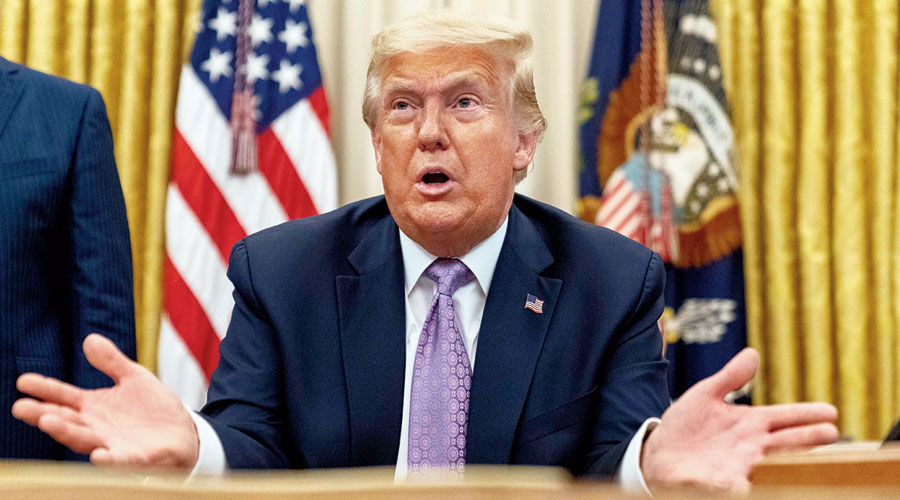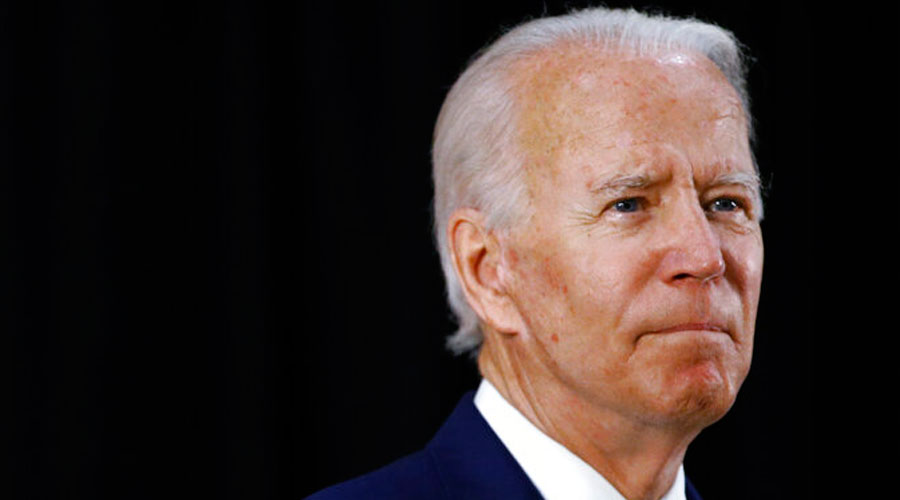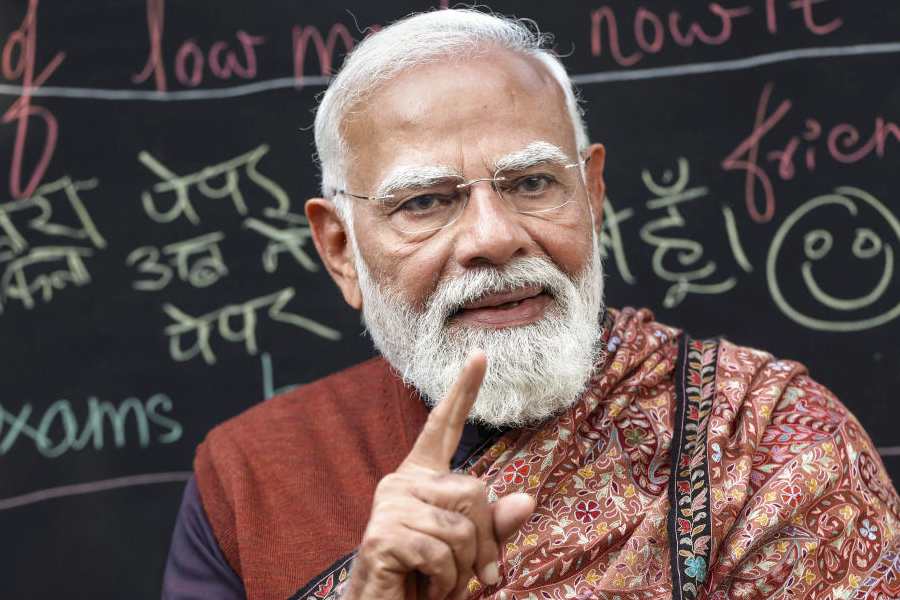The first presidential debate between President Trump and Joseph R. Biden Jr. unravelled into a rhetorical melee Tuesday, as Trump hectored and interrupted Biden nearly every time he spoke and the former vice president denounced the president as a “clown” and told him to “shut up.”
In a chaotic, 90-minute back-and-forth, the two major party nominees expressed a level of acrid contempt for each other unheard-of in modern American politics.
Trump, trailing in the polls and urgently hoping to revive his campaign, was plainly attempting to be the aggressor. But he interjected so insistently that Biden could scarcely answer the questions posed to him, forcing the moderator, Chris Wallace of Fox News, to repeatedly urge the President to let his opponent speak.
“Will you shut up, man?” Biden demanded of Trump at one point in obvious exasperation. “This is so unpresidential.”
Yet Biden also lobbed a series of bitingly personal attacks of his own. “You’re the worst president America has ever had,” he said to Mr. Trump.
“In 47 months I’ve done more than you have in 47 years,” Trump shot back, referring to his rival’s career in Washington.
The president’s bulldozer-style tactics represented an extraordinary risk for an incumbent who’s trailing Biden because voters, including some who supported him in 2016, are so fatigued by his near-daily attacks and outbursts. Yet the former vice president veered between trying to ignore Trump by speaking directly into the camera to the voters, and giving in to temptation by hurling insults at the president. Biden called Mr. Trump a liar and a racist.
Trump peppered his remarks with misleading claims and outright lies, predicting that a coronavirus vaccine was imminent when his own chief health advisers say otherwise, claiming that his rollback of fuel-efficiency standards would not increase pollution and insisting that a political adviser, Kellyanne Conway, had not described riots as useful to Trump’s campaign, when she did so on television.
And even as he went on the offensive against Biden on matters of law and order, Trump declined to condemn white supremacy and right-wing extremist groups when prompted by Wallace and Biden. When Wallace asked him whether he would be willing to do so, Trump replied, “Sure,” and asked the two men to name a group they would like him to denounce.
But when Biden named the Proud Boys, a far-right group, Trump did not do so and even suggested they be at the ready.
“Proud Boys? Stand back and stand by,” the president said, before pivoting to say, “Somebody’s got to do something about antifa and the left.”
Trump’s volcanic performance appeared to be the gambit of a president seeking to tarnish his opponent by any means available, unbounded by norms of accuracy and decorum and unguided by a calculated sense of how to sway the electorate or assuage voters’ reservations about his leadership.
In an election marked by sharply defined and stubbornly stable opinions about both candidates, the president’s conduct was the equivalent of pulling the pin on a hand grenade and hoping that the ensuing explosion would harm the other candidate more.
But Trump made no effort to address his most obvious political vulnerabilities, from his mismanagement of the pandemic to his refusal to condemn right-wing extremism, and it was not clear that he did anything over the course of the evening to appeal to voters who have deeply disliked him, including those who reluctantly supported him four years ago. Rather than focus on those voters, he sought to undercut confidence in the act of voting itself, making claims about fraud while offering little evidence.
Covid care blame game
The debate, at Case Western Reserve University in Cleveland, quickly descended into name-calling and hectoring in the first 15 minutes, derisive attacks that were extraordinary even by the standards of Trump’s unruly presidency.
When Biden attempted to discuss voters who had lost loved ones to the coronavirus, Trump interjected. “You would’ve lost far more people,” he declared. The former vice president veered between smiling and shaking his head in bemusement and firing off attacks of his own as Trump kept interrupting.
In an exceptionally charged moment, Trump spoke dismissively about Biden’s deceased son, Beau, who died from brain cancer in 2015, rejecting an opportunity to show a modicum of personal grace toward his political opponent. Biden alluded to Beau Biden’s military service as he rebuked the president for having reportedly referred to America’s fallen soldiers as “losers.”
Trump answered with a rhetoric roll of the eyes, and began attacking Biden’s other son: “I don’t know Beau; I know Hunter,” he said, proceeding to ridicule Hunter Biden for his business dealings and struggles with drug addiction.
Amid Trump’s onslaught, Biden repeatedly offered blanket denials that there was anything inappropriate in Hunter Biden’s overseas work, and said he was “proud of my son” for confronting addiction.

Donald Trump AP file picture
‘Billions of dollars in taxes’
Biden also highlighted The New York Times’s revelations about how little Trump has paid in taxes. “This guy paid a total of $750,” Biden said.
Pressed about how much he did pay in 2016 and 2017, the president claimed he paid “millions of dollars” but offered no evidence and declined to say he would release his tax returns.
One of the few phases of the debate that might have been taken by an open-minded viewer as an extended and articulate exchange of views came on the subject of the coronavirus pandemic. Trump voiced impatience with a range of public-health restrictions and Biden criticized the president for being dismissive of measures like mask wearing and social distancing.
“If we just wore masks between now — and social distanced — between now and January, we would probably save up to 100,000 lives,” said Biden, who also alluded to the disclosure in the journalist Bob Woodward’s recent book that the president had misled the American people about the severity of the virus last winter.
But even on a matter as grave as the pandemic, Mr. Trump indulged freely in personal mockery. When Biden called him “totally irresponsible” for holding mass rallies without health protections in place, Trump responded by mocking Biden’s more constrained events, suggesting the former vice president would hold large events, too, “if you could get the crowds.”
Series of falsehoods
For all his evident frustration with Trump for not abiding by the rules, Wallace made no attempt to correct the president as he unspooled a series of falsehoods. Trump, for example, insisted that Biden had once called criminals “superpredators.” But it was Hillary Clinton who said it, in 1996.
In addition to lobbing false allegations, Trump also was unable, or unwilling, to discuss policy issues in a detailed manner. Pressed on whether he believed in climate change, the president said, “I think to an extent yes,” before quickly adding: “We’re planting a billion trees.”
For Mr. Trump, this first debate appeared to be his best chance to change the trajectory of a presidential race that has so far resisted all manner of Trumpian efforts to shake it up. The president has cycled through an array of attacks against his Democratic challenger in recent months, criticizing or outright smearing Biden’s governing record, personal ethics, economic policies, family finances, and mental and physical health — often relying on misinformation and falsehoods.
Over the last month, Republicans have made an especially concerted push to brand Biden as overly sympathetic to racial-justice protests that have turned unruly and insufficiently committed to maintaining public order.
Yet that argument has not budged the race an inch in Mr. Trump’s direction, or changed the minds of a majority of voters who take a negative view of his personal character and his leadership during the pandemic.
New York Times News Service










